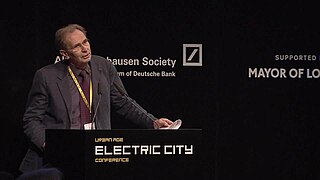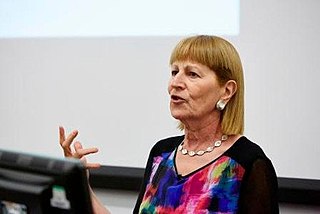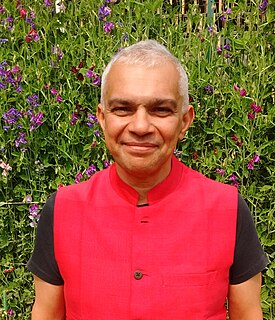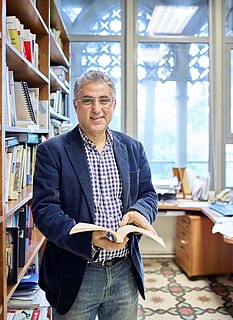Related Research Articles

Ulrich Beck was a German sociologist, and one of the most cited social scientists in the world during his lifetime. His work focused on questions of uncontrollability, ignorance and uncertainty in the modern age, and he coined the terms "risk society" and "second modernity" or "reflexive modernization". He also tried to overturn national perspectives that predominated in sociological investigations with a cosmopolitanism that acknowledges the interconnectedness of the modern world. He was a professor at the University of Munich and also held appointments at the Fondation Maison des Sciences de l’Homme (FMSH) in Paris, and at the London School of Economics.

Dipesh Chakrabarty is an Indian historian, who has also made contributions to postcolonial theory and subaltern studies. He is the Lawrence A. Kimpton Distinguished Service Professor in history at the University of Chicago, and is the recipient of the 2014 Toynbee Prize, named after Professor Arnold J. Toynbee, that recognizes social scientists for significant academic and public contributions to humanity.
Sandra G. Harding is an American philosopher of feminist and postcolonial theory, epistemology, research methodology, and philosophy of science. She directed the UCLA Center for the Study of Women from 1996 to 2000, and co-edited Signs: Journal of Women in Culture and Society from 2000 to 2005. She is currently a Distinguished Professor Emeritus of Education and Gender Studies at UCLA and a Distinguished Affiliate Professor of Philosophy at Michigan State University. In 2013 she was awarded the John Desmond Bernal Prize by the Society for the Social Studies of Science (4S).

Patricia Hill Collins is an American academic specializing in race, class, and gender. She is a Distinguished University Professor of Sociology Emerita at the University of Maryland, College Park. She is also the former head of the Department of African-American Studies at the University of Cincinnati, and a past President of the American Sociological Association (ASA). Collins was the 100th president of the ASA and the first African-American woman to hold this position.

Craig Jackson Calhoun is an American sociologist, currently University Professor of Social Sciences at Arizona State University. An advocate of using social science to address issues of public concern, he was the Director of the London School of Economics and Political Science from September 2012 until September 2016, after which he became the first president of the Berggruen Institute. Prior to leading LSE, Calhoun led the Social Science Research Council, and was University Professor of the Social Sciences at New York University and Director of NYU's Institute for Public Knowledge. With Richard Sennett he co-founded NYLON, an interdisciplinary working seminar for graduate students in New York and London who bring ethnographic and historical research to bear on politics, culture, and society.

John Richard Urry was a British sociologist who served as a professor at Lancaster University. He is noted for work in the fields of the sociology of tourism and mobility.
The British Sociological Association (BSA) is a scholarly and professional society for sociologists in the United Kingdom, and was founded in 1951. It publishes the academic journals Sociology, Work, Employment and Society, Sociological Research Online and Cultural Sociology as well as its membership newsletter Network and a monthly eNewsletter. Formerly, the British Journal of Sociology was the BSA's official journal, but it was replaced by Sociology some years after the latter had been established.

Arif Dirlik was a Turkish-American historian who published on historiography and political ideology in modern China, as well as issues in modernity, globalization, and post-colonial criticism. Dirlik received a BSc in Electrical Engineering at Robert College, Istanbul in 1964 and a PhD in History at the University of Rochester in 1973.

Sylvia Theresa Walby is a British sociologist, currently Professor of Sociology, Director of the Violence and Society Centre at the City University of London. She has an Honorary Doctorate from Queen's University Belfast for distinction in sociology. She is noted for work in the fields of the domestic violence, patriarchy, gender relations in the workplace and globalisation.

Elleke Boehmer, FRSL, FRHistS is Professor of World Literature in English at the University of Oxford, and a Professorial Governing Body Fellow at Wolfson College. She is an acclaimed novelist and a founding figure in the field of Postcolonial Studies, internationally recognised for her research in colonial and postcolonial literature and theory. Her main areas of interest include the literature of empire and resistance to empire; sub-Saharan African and South Asian literatures; modernism; migration and diaspora; feminism, masculinity, and identity; nationalism; terrorism; J. M. Coetzee, Katherine Mansfield, and Nelson Mandela; and life writing.
Peter Mayo is a professor, speaker, editor, writer, and former head of the Department of Arts, Open Communities and Adult Education at the University of Malta, in Malta. He is responsible for the UNESCO Chair in Global Adult Education at the same university. He formerly served as the university's head of the Department of Education Studies from 2008 to 2012. Mayo was a member of the Collegio Docenti for the doctoral research programme in Educational Sciences and Continuing Education at the Università degli Studi di Verona. He teaches in the areas of sociology of education and adult continuing education, as well as in comparative and international education and sociology in general. He was previously employed as a school teacher and later as Officer in Charge of Adult Education in the then Department of Education, Ministry of Education, Malta. Mayo has held visiting professorial appointments at multiple universities and was a Visiting Professorial Fellow at the Institute of Education, University College London during 2014. He was previously a member of the Collegio Docenti for the international doctorate in intercultural sociology and education at the University of Messina and was the President of the Mediterranean Society of Comparative Education (MESCE) from 2008 to 2010. He was visiting professor at the Institute of Education, University College London

Judy Wajcman, is the Anthony Giddens Professor of Sociology at the London School of Economics and Political Science. She is the Principal Investigator of the Women in Data Science and AI project at The Alan Turing Institute. She is also a Visiting Professor at the Oxford Internet Institute. Her scholarly interests encompass the sociology of work, science and technology studies, gender theory, and organizational analysis. Her work has been translated into French, German, Greek, Italian, Korean, Japanese, Portuguese, Russian, Chinese and Spanish. Prior to joining the LSE in 2009, she was a Professor of Sociology in the Research School of Social Sciences at the Australian National University. She was the first woman to be appointed the Norman Laski Research Fellow (1978–80) at St. John's College, Cambridge. In 1997 she was elected Fellow of the Academy of the Social Sciences in Australia.
Peter Beilharz is an Australian sociologist. He is Professor of Critical Theory at Sichuan University, Chengdu, PRC. Previously he was Professor of Sociology and remains Emeritus Professor at La Trobe University, Melbourne. He is Adjunct Professor at Curtin University, Perth, Western Australia. Beilharz is Founding Editor of the international journal of social theory Thesis Eleven published by Sage.

Saurabh Dube is an Indian scholar whose work combines history and anthropology, archival and field research, subaltern studies and postcolonial-decolonial perspectives, and social theory and critical thought. After teaching at the University of Delhi, since 1995 he is Professor of History – elected to the Distinguished Category of Professor-Researcher in 2009 – at the Centre of Asian and African Studies at El Colegio de México in Mexico City. Dube is a member also of the National System of Researchers (SNI), Mexico, in which since 2005 he holds the highest rank.
Sue Scott is a British sociologist and feminist whose research has focused primarily on sexuality, gender and risk. She is a Visiting Professor at the University of Newcastle and an Honorary Professor at the University of Helsinki. From 2013–2019 she was Honorary Professor In the Centre for Women's Studies at the University of York. She was President of the British Sociological Association 2007–2009 and President of the European Sociological Association 2017–2019. She is a co-founder and Managing Editor of the Social Science Research Magazine ‘Discover Society’.
Decoloniality is a school of thought used principally by an emerging Latin American movement which focuses on untangling the production of knowledge from a primarily Eurocentric episteme. It critiques the perceived universality of Western knowledge and the superiority of Western culture. Decolonial perspectives see this hegemony as the basis of Western imperialism.

Sari Hanafi is currently a professor of sociology at the American University of Beirut and chair of the Islamic Studies program. He is the president of the International Sociological Association and also the editor of Idafat: the Arab Journal of Sociology (Arabic). In 2018, Hanafi founded "Athar", the Portal for Social impact of scientific research in/on the Arab world.
Raka Ray is an American sociologist and academic. She is a full-time professor at the University of California, Berkeley in the departments of Sociology and Southeast Asian Studies. She became the Dean of Social Sciences at UC-Berkeley in January 2020. Ray's research interests include gender and feminist theory, postcolonial sociology, emerging middle classes, South Asia, inequality, qualitative research methods, and social movements. Her current project explores changes in the meanings and relations of servitude in India. Ray is also an editor of the publication Feminist Studies.
Zine Magubane is a scholar whose work focuses broadly on the intersections of gender, sexuality, race, and post-colonial studies in the United States and Southern Africa. She has held professorial positions at various academic institutions in the United States and South Africa and has published several articles and books.

Decolonization of knowledge is a concept advanced in decolonial scholarship that critiques the perceived hegemony of Western knowledge systems. It seeks to construct and legitimize other knowledge systems by exploring alternative epistemologies, ontologies and methodologies. It is also an intellectual project that aims to "disinfect" academic activities that are believed to have little connection with the objective pursuit of knowledge and truth. The presumption is that if curricula, theories, and knowledge are colonized, it means they have been partly influenced by political, economic, social and cultural considerations. The decolonial knowledge perspective covers a wide variety of subjects including philosophy, science, history of science, and other fundamental categories in social science.
References
- 1 2 "Prof Gurminder Bhambra". University of Sussex. Retrieved 26 March 2021.
- 1 2 3 "Professor Gurminder K Bhambra FBA". The British Academy. Retrieved 26 March 2021.
- 1 2 "About Us". Discover Society. 21 July 2013. Retrieved 26 March 2021.
- 1 2 "About". Global Social Theory. Retrieved 26 March 2021.
- 1 2 3 Khurana, Lukas Kikuchi, Ishan. "Connected Sociologies". Connected Sociologies. Retrieved 26 March 2021.
- ↑ Bloomsbury. "Bloomsbury - Theory for a Global Age Series". Bloomsbury. Retrieved 26 March 2021.
- ↑ "Theory for a Global Age". Manchester University Press. Retrieved 26 March 2021.
- ↑ "Philip Abrams Memorial Prize Archive". British Sociological Association. Retrieved 26 March 2021.
- 1 2 "Gurminder K Bhambra". SPERI. Retrieved 26 March 2021.
- ↑ "Five Minutes with John Holmwood and Sue Scott: "Discover Society puts social research back at the heart of public debate."". Impact of Social Sciences. 4 October 2013. Retrieved 26 March 2021.
- ↑ "Why is my curriculum white?". UCL - Dismantling the Master's House. Retrieved 26 March 2021.
- 1 2 Bhambra, Gurminder K. (5 October 2020). "The Connected Sociologies Curriculum Project". The Sociological Review. Retrieved 26 March 2021.
- ↑ Bhambra, Gurminder K. (12 June 2020). "Opinion | A Statue Was Toppled. Can We Finally Talk About the British Empire?". The New York Times. ISSN 0362-4331 . Retrieved 26 March 2021.
- ↑ Bhambra, Gurminder K. "Europe won't resolve the 'migrant crisis' until it faces its own past". The Conversation. Retrieved 26 March 2021.
- ↑ "Author Page". openDemocracy. Retrieved 26 March 2021.
- ↑ Adem, Gurminder K. Bhambra, Yolande Bouka, Randolph B. Persaud, Olivia U. Rutazibwa, Vineet Thakur, Duncan Bell, Karen Smith, Toni Haastrup, Seifudein. "Why Is Mainstream International Relations Blind to Racism?". Foreign Policy. Retrieved 26 March 2021.
- ↑ "gurminder bhambra". The Sociological Review. Retrieved 26 March 2021.
- ↑ Diversified, AuthorMedia (25 June 2018). "Racial hierarchy and migration in Britain | Windrush 70th Anniversary series". Media Diversified. Retrieved 26 March 2021.
- ↑ "Why are the white working classes still being held responsible for Brexit and Trump?". LSE. 10 November 2017. Retrieved 26 March 2021.
- ↑ Bhambra, Gurminder K. (13 June 2020). "Learning about our past and how it affects the present". University World News. Retrieved 26 March 2021.
- ↑ "Gurminder K. Bhambra". Times Higher Education. 20 September 2018. Retrieved 26 March 2021.
- ↑ TEDx Talks (11 December 2017). "Everything you know about Brexit is wrong | Gurminder Bhambra | TEDxBrum". YouTube. Retrieved 26 March 2021.
- ↑ CAMPUS Talks: Gurminder K. Bhambra , retrieved 26 March 2021
- ↑ Atlantic Fellows (9 August 2019). "Professor Gurminder Bhambra - History Matters: Inequalities, Reparation and Redistribution". YouTube. Retrieved 26 March 2021.
- ↑ Social Science Bites (1 July 2020). "Gurminder K. Bhambra on Postcolonial Social Science". Social Science Space. Retrieved 26 March 2021.